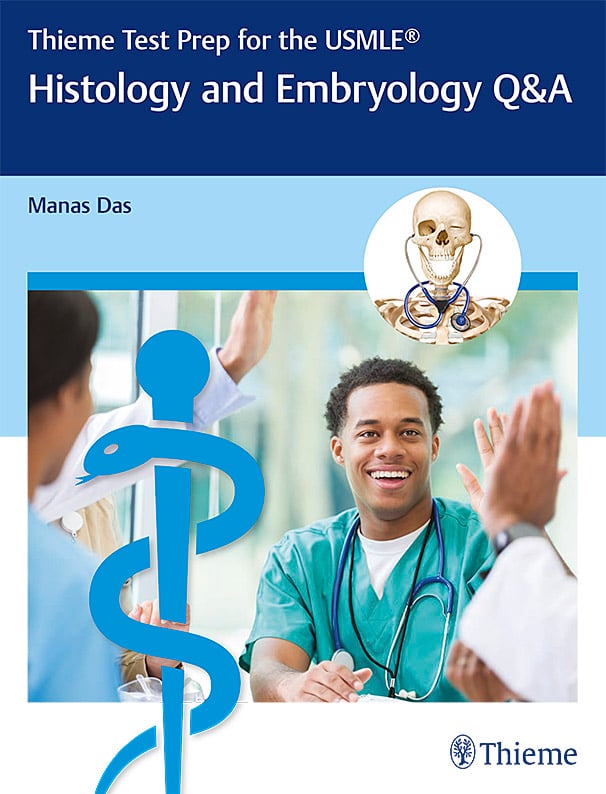Translational Anatomy Faculty
|
Associate Professor in Radiology, UMass Chan Medical School |
|
|
Lela Giannaris, PhD is an Associate Professor in the Division of Translational Anatomy in the Department of Radiology at UMass Chan. Dr. Giannaris joined the UMass Chan faculty in 2010 after earning a PhD in Anatomy and Neurobiology from Boston University School of Medicine. She previously worked at the Belfer Gene Therapy Core Facility at Weill Medical College of Cornell University performing preclinical testing of viral vectors for the treatment of Batten’s Disease. She earned a BA degree in Biology, with a concentration of Neurobiology and Behavior, from Cornell University. Dr. Giannaris has conducted neuroscience research on various topics, such as gene therapy for neurodegenerative diseases and quantitative neuroanatomy in aging. Dr. Giannaris currently serves as Chair of the first year Foundations of Medicine (FOM1) curriculum committee, Director of Anatomy and Course Co-Leader of the Development, Structure, and Function (DSF) course, as well as core faculty in the second year Brain: Track 1- Clinical Neuroanatomy course. The DSF course is the largest foundational course for first-year medical students at UMass Chan and integrates the disciplines of anatomy, embryology, histology, radiology and physiology. In this educational leadership role, she has been focused on effecting several changes to improve the quality of the student experience, increase integration among disciplines, and emphasize clinically relevant anatomy. Within the Department of Radiology, Dr. Giannaris has worked closely with colleagues to integrate teaching of clinical anatomy with diagnostic radiology. As part of the DSF leadership team, she was lauded with the Educational Achievement (Star) Award in 2019 for work in transforming this major foundational course into an engaging vertically and horizontally integrated learning experience for UMass Chan medical students. Dr. Giannaris has also been recognized by students for excellence in teaching with Outstanding Basic Science Medical Educator Awards in 2015 and 2020. She is currently overseeing the development and implementation of a longitudinal anatomy curriculum as part of the UMass Chan curriculum revolution efforts, a major collaborative effort with basic scientists and clinicians across the institution. She is inspired by the collaborative work and innovation that comes from engaging with colleagues on interprofessional teams. In addition, Dr. Giannaris directs the Summer Prosection Program for rising second-year medical students who are interested in receiving further training in anatomy and developing educational materials to enhance the anatomy curriculum. Each year she also engages students in the Summer Curriculum Development Program and has produced innovative curricular resources in collaboration with them. She incorporates feedback and carefully evaluates each resource and curricular element with an eye on both content and the student experience. She enjoys working with students and strives to create a positive and inclusive learning environment. Dr. Giannaris’ research interests include curriculum development, implementation and assessment for gross anatomy and neuroanatomy in undergraduate medical education. She also has a strong interest in the hidden curriculum that the anatomy dissection experience offers. She works to promote humanism in her teaching and has implemented special ceremonies for students both at the start and end of the anatomy course, in addition to well-established annual anatomical gift donor memorial service. In addition to her many service contributions at UMass Chan, Dr. Giannaris is also involved on the national level with anatomy professional organizations. She is former chair and now presidential appointee on the Educational Affairs Committee (EAC) of the American Association of Clinical Anatomists (AACA) and a member of the Professional Development Committee (PDC) of the American Association of Anatomists (AAA). Dr. Giannaris is also a graduate of the American Association of Medical College’s (AAMC) Leadership Education and Development (LEAD) year-long certificate program. The program focused on four areas: 1) vision and setting direction; 2) developing people; 3) developing organizations; and 4) managing effectively. She is also a graduate of the Junior Faculty Development Program (JFDP) at UMass Chan. She is a passionate and dedicated medical educator and leader who strives to make learners and colleagues feel engaged, empowered and valued. |
|
|
Associate Professor in Radiology, UMass Chan Medical School |
|
|
Yasmin Carter Ph.D. serves as an Associate Professor of Translational Anatomy within the Department of Radiology at UMASS Chan Medical School. Additionally, she holds a secondary appointment within the Tan Chingfen Graduate School of Nursing. Dr. Carter assumes pivotal roles as the Director of Impact and Scholarship for the DRIVE initiative, Director of Vista Longitudinal Focus Topics (LFT) Integration, and currently serves as the interim Director of Health Equity, Diversity, and Inclusion (HEDI) LFT. Dr. Carter's professional journey is marked by a spectrum of interdisciplinary experience. Her tenure as a core faculty member in Human Anatomy at UMass Chan Medical School commenced in 2015. Prior to this, she held a postdoctoral fellowship at the Royal University Hospital in Saskatchewan, Canada, with a focus on clinical imaging instruction. Her educational journey encompasses a Ph.D. in high-resolution imaging of bone from the Canadian Light Source (CLS) Synchrotron in Saskatoon, Canada, a master's degree in biological anthropology from Manitoba, Canada, and a bachelor's degree with first-class honors in human anthropology from Bristol, UK. Dr. Carter's responsibilities are multifaceted and encompass three overarching domains: Gross Anatomy: Dr. Carter plays a pivotal role as a core anatomy faculty member, delivering instruction to medical students at the T.H. Chan School of Medicine. She is dedicated to advancing health equity for gender and sexual minorities and is credited with introducing a pioneering module that integrates fundamental concepts of sex and gender into the anatomical curriculum. This innovative approach, developed by Dr. Carter, has not only been implemented at UMass Chan but has also gained international recognition. Furthermore, her development of the "female first" model of anatomical education has been incorporated into medical education texts. DRIVE: Dr. Carter is responsible for the creation of training programs and resources that support faculty development as part of the three-school initiative involving the School of Medicine, Graduate School of Nursing, Graduate School of Biomedical Sciences, and Graduate Medical Education. Her efforts are geared towards fostering a more diverse learning environment. LFT Integration: As part of the Vista Curriculum Revolution, Dr. Carter leads a dedicated team aimed at ensuring the appropriate and consistent integration of subjects historically underrepresented in medical education, particularly pertaining to Health System Science, Societal Forces in Health & Disease, and Health Equity. These initiatives are woven longitudinally throughout the preclinical and clinical years. Dr. Carter's professional pursuits extend to leadership development and skill enhancement. Notably, she is a 2023 American Medical Association Health System Science Scholar and has earned white and yellow LEAN belts. Her current focus lies in her Green Belt Project. She takes the lead in driving educational initiatives for students, faculty, and clinicians at all stages of their careers, which includes the Junior Faculty Development Program and the New England Teachers of Tomorrow course. Her mentorship has proved highly impactful, with her mentees securing grants and awards, including the Massachusetts Medical Society Technology Award in 2019. In recognition of her educational contributions, Dr. Carter was honored with a 2021 STAR teaching award and received a Dean's Commendation letter in 2023 based on exceptional student feedback regarding her educational experiences. Dr. Carter's scientific background has equipped her with a metric-driven approach to evaluating the impact of curricular updates and faculty development. This approach includes the development of AI-natural language processing analyses to uncover concealed patterns in learner and faculty needs. Her research endeavors span the fields of bone biology and human osteology. In addition to her academic roles, Dr. Carter engages in private consulting work with various industries, including fashion, sports, and outdoor gear manufacturers. She is a sought-after speaker and has delivered numerous keynote speeches and webinars, emphasizing the importance of cultivating an inclusive educational culture to enhance learner success. Dr. Carter also contributes her expertise as a sex and gender consultant for textbooks published by Wolters Kluwer and serves as a subject matter expert in anatomy and diversity for the Apple Design Award-winning app "Complete Anatomy." |
|

Associate Professor in Radiology, UMass Chan Medical School
|
|
Dr. Manas Das is Director of Clinical Anatomy, Director of Embryology and Director of Histology. Dr. Das first earned his MD and later an MS [Anatomy] from the University of Calcutta in Kolkata, India. His post-graduate training specialized in Clinical Anatomy and Neurology. After completing his medical training he initially practiced medicine full time, mostly ICU/Cardiology, then practiced and taught and eventually became a full time educator in 2005. Dr. Das finds working with students the most inspiring. Dr. Das for previously was Associate Professor and Director of Anatomical Sciences Education and Director of Medical Foundations at Sanford School of Medicine, University of South Dakota.
He is a founding member of a community within the American Association of Anatomists titled ‘Task Force in Anatomical Sciences’. Dr. Das led a national group of educators from within the community to develop standards for competencies in Medical Histology and Human Embryology. Their paper A Guide to Competencies, Educational Goals, and Learning Objectives for Teaching Human Embryology in an Undergraduate Medical Education Setting was published in the Medical Science Educator in March 2018. |
|
|
Assistant Professor in Radiology, UMass Chan Medical School |
|
|
Alexandra Wink, PhD recently joined the Division of Translational Anatomy where she will be teaching in the DSF course for the first year medical students and assisting in the anatomy labs. Dr. Wink's education includes a BS, Physiology and Developmental Biology (Brigham Young University – Provo,); MS, Forensic Anthropology (Boston University SoM); PhD, Anatomy and Neurobiology (Boston University School of Medicine). She was a graduate teaching fellow at Boston University School of Medicine where she assisted in Gross Anatomy and Neuroscience courses for Medical, Dental, and Graduate Students. Prior to that, she worked as a forensic anthropologist at the Joint POW-MIA Accounting Command Central Identification Laboratory in Hawaii, where she focused on identifying skeletal remains of unaccounted-for US service members and aided in a mass identification effort for Korean War Unknowns. Dr. Wink's first forays into anatomy were as a small child surrounded by Charlie Brown’s ‘Cyclopedia of the Human Body and her mom’s copy of Taber’s Medical Dictionary, but her current position in medical education was a bit of a happy accident. She pursued an anatomy PhD with the original intention of returning to forensic anthropology, but after completing her department’s extensive teaching requirement, she fell in love with teaching and developing new ways to get students excited about anatomy. In addition, she completed a dissertation in clinical epidemiology and developed a skill set that can easily translate to medical education research. Alexandra is very interested in developing ways to make the dissection experience more meaningful for students. This includes using anatomy laboratory time to foreshadow the human aspects of clinical practice and to develop peer communication skills, but it also means teaching students that proper dissection technique and a solid understanding of anatomical relationships go hand-in-hand. |
|
|
Instructor Radiology, UMass Chan Medical School |
|
|
Amanda Collins, MPH is an Instructor for the Division of Translational Anatomy at the UMass Chan Medical School and is the Director of Anatomical Services. Ms. Collins is currently working toward a Ph.D. in Gerontology at University of Massachusetts – Boston, focusing her research on grief, bereavement, and end-of-life care. Ms. Collins completed her Master's of Public Health at the University of Vermont and her undergraduate studies in Mortuary Science and Family Social Science at the University of Minnesota - Twin Cities. Following her undergraduate studies, Ms. Collins worked as a mortician, specializing in embalming and restorative art techniques. Her technical skills led her to a position at the University of Vermont as an anatomical embalmer. She joined the UMass Chan Medical School in 2016 as the Director of Anatomical Services. As the Director, she oversees the operations of the Anatomical Gift Program and manages the Anatomy Resource Center. Her interests include preservation techniques, environmental health and safety in the anatomy labs, and improving educational efforts in the anatomy lab. Her research efforts explore grief, healthy aging, and body donation ethics, all of which she strives to integrate into the lab experience. Ms. Collins joined the faculty for the first-year medical student course - Development, Structure, and Function in 2018. Her educational interests include lecturing in embryology and instructing students in the anatomy labs. Ms. Collins sits on the Anatomical Gift Program Oversight Committee, the Pine Hill Cemetery Board of Directors, and is active in the Anatomical Services special interest group of the American Association of Clinical Anatomists (AACA). She is an active member in the professional organizations: National Funeral Directors Association of America, American Association for Anatomy (AAA) and Gerontological Society of America (GSA) |
|
|
Anne Gilroy Emeritus Professor of Clinical Anatomy, UMass Chan Medical School |
|
|
Anne Gilroy, Retired Professor of Clinical Anatomy, over her 25 years as a UMass employee, she created and directed a variety of 4th year electives and residency anatomy programs, and was co-director of the Development, Structure and Function course for 1st year medical students. In 2008 Anne co-authored the Thieme’s Atlas of Anatomy (now in its 2nd edition) and in 2012 authored Thieme’s Anatomy-An Essential Textbook, both of which were designed for use in medical gross anatomy programs. Her interests focus on curriculum development, especially as it pertains to the integration of clinical medicine with basic anatomy. As the Director of Anatomy and Imaging Resources for iCels, Anne was responsible for creating innovative teaching strategies through the use of simulation technology. Since 2012 Anne has been part of the collaborative revitalization of the anatomy program at the A.M. Dogliotti College of Medicine of the University of Liberia, West Africa. |




 Das’ first book, Medical Histology and Embryology Q&A, was published in November of 2017 by Thieme Publishers, Inc., NY, USA.
Das’ first book, Medical Histology and Embryology Q&A, was published in November of 2017 by Thieme Publishers, Inc., NY, USA. 




